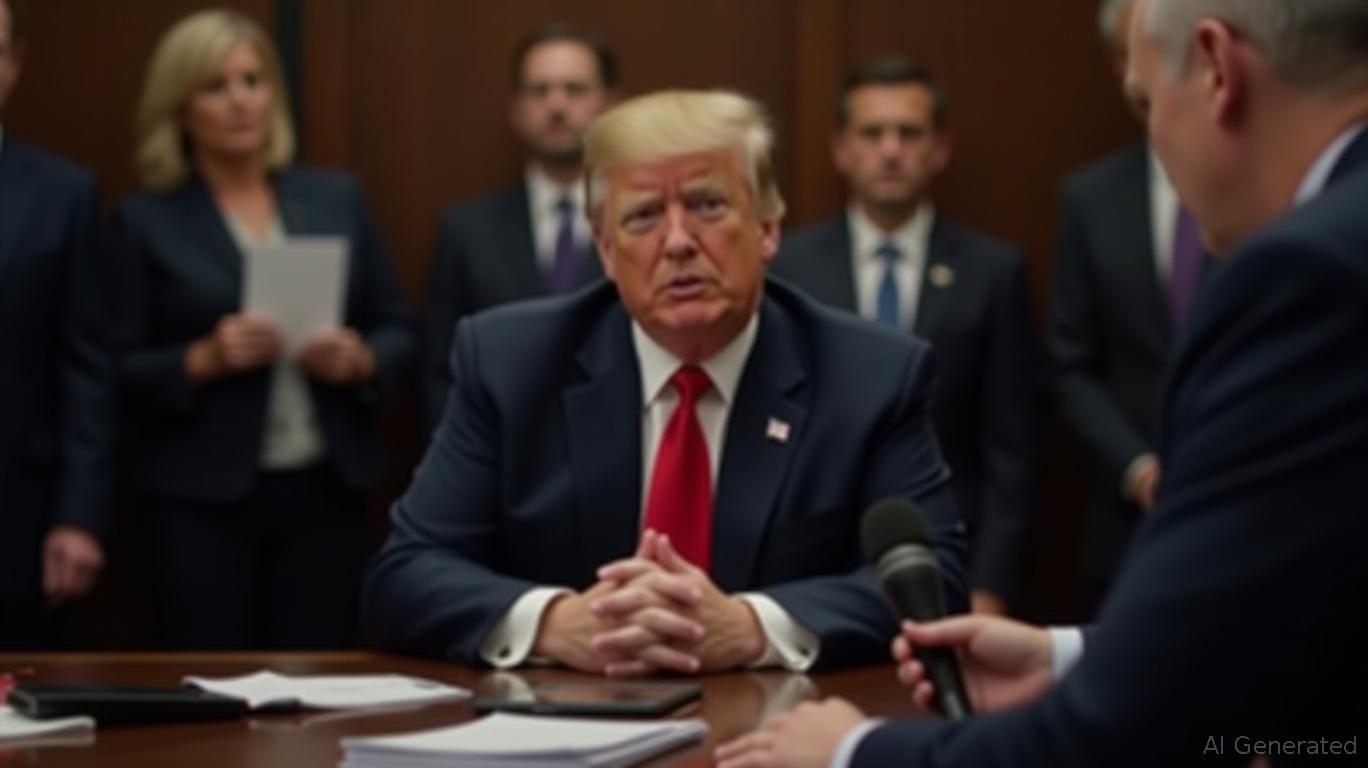Pardon or Payment? Trump's Cryptocurrency Decision Ignites Discussion on the Influence of Lobbying
Donald Trump's decision to grant a pardon to Changpeng Zhao, the founder of Binance, has ignited significant debate regarding the influence of lobbying on U.S. cryptocurrency regulations. The pardon, made public on October 23, 2025, came after Binance and its executives launched a major lobbying effort, reportedly channeling more than $740,000 to individuals and organizations with connections to Trump in hopes of securing Zhao’s release following his four-month sentence in 2024 for anti-money laundering offenses, as detailed by Coinotag.
. This action highlights a broader transformation in the Trump administration’s stance on digital asset oversight, with the administration now presenting itself as a strong supporter of the crypto sector, according to Blockchain Magazine. .Changpeng Zhao, often referred to as "CZ," admitted guilt in 2023 to breaching U.S. financial regulations, including the Bank Secrecy Act, as part of a $4.3 billion agreement with authorities. Prosecutors alleged that Binance ran an unauthorized money transfer operation and failed to block transactions that violated U.S. sanctions, including those involving groups tied to Hamas and Iran, according to Business Standard.
. Despite these accusations, the Trump administration justified the pardon as a rejection of what it called the Biden administration’s “war on cryptocurrency.” White House Press Secretary Karoline Leavitt stated that Zhao’s case did not involve “fraud or clear victims,” and described the proposed three-year sentence as “without precedent,” a sentiment echoed in Blockchain Magazine.
The campaign to secure Zhao’s pardon demonstrates a calculated partnership between Binance and Trump’s closest associates. In September 2025, Binance brought on Ches McDowell, a lobbyist from North Carolina and hunting companion of Trump Jr., to advocate on their behalf to the White House and Treasury. McDowell’s company, Checkmate Government Relations, received $450,000 from Binance in just one month, as reported by CoinEdition.
. Earlier that year, Zhao and Binance also engaged Teresa Goody Guillén, a lawyer specializing in crypto who was once considered for the SEC chair position under Trump, paying her $290,000 for her legal and regulatory expertise, according to LookOnChain. . These payments add to Binance’s previous lobbying outlays, which exceeded $1 million in 2022, prior to their plea agreement with U.S. authorities, as noted in a follow-up by Coinotag. .The decision to pardon Zhao has faced backlash from politicians such as Representative Maxine Waters, who described it as a “huge gift to crypto offenders” and pointed to the financial links between Binance and Trump-affiliated projects, including
The Trump administration’s favorable approach to digital assets is not limited to Zhao’s case. In July 2025, the Justice Department dissolved its National Cryptocurrency Enforcement Team, indicating a move away from strict crypto regulation, a development highlighted by Business Times. Binance’s renewed lobbying efforts, totaling $860,000 in 2025, are part of a broader campaign to restore its reputation with American lawmakers after years of legal disputes, according to CoinEdition.